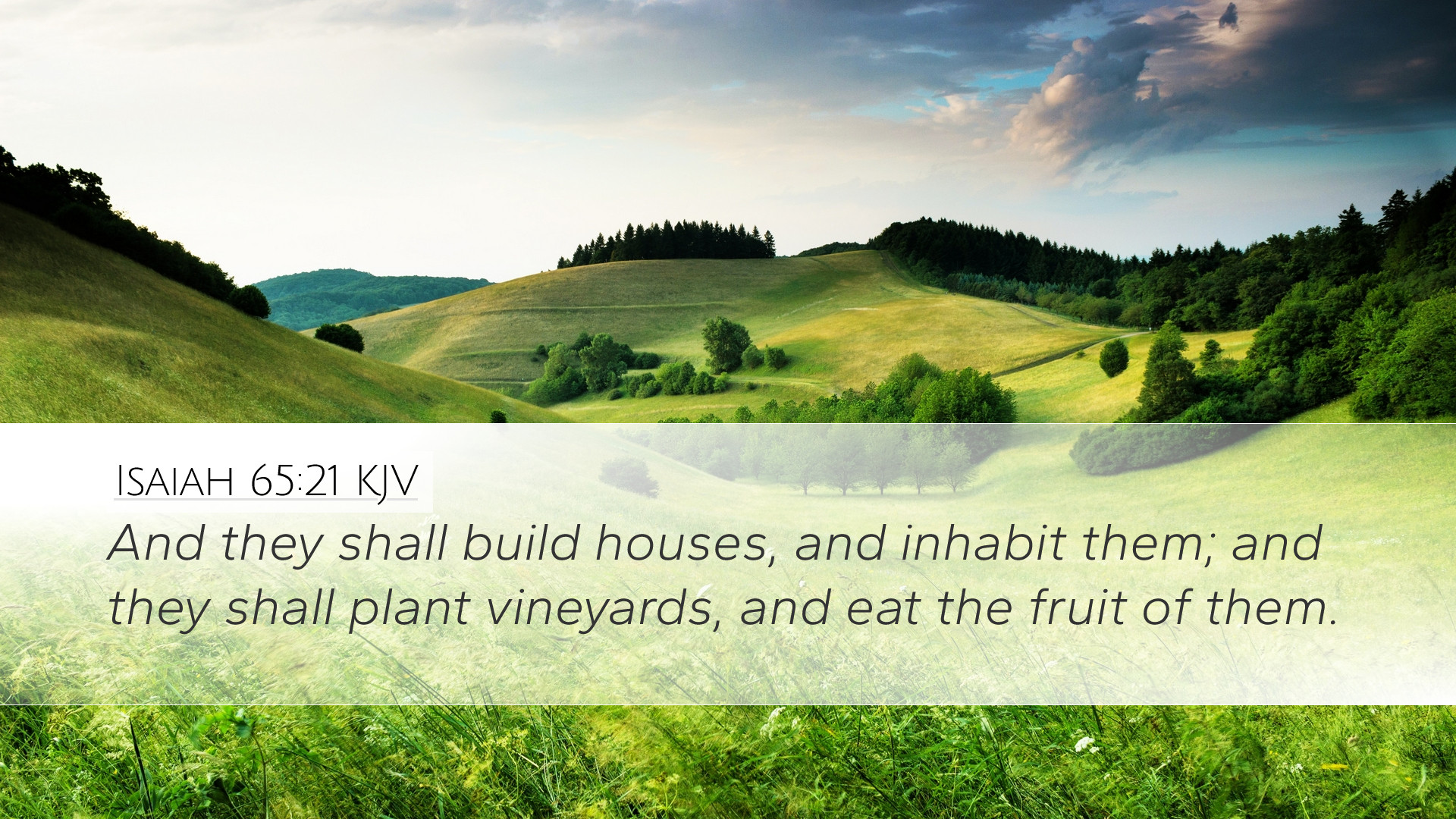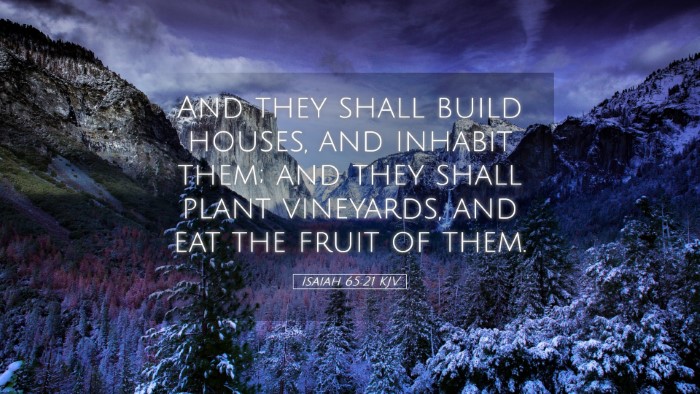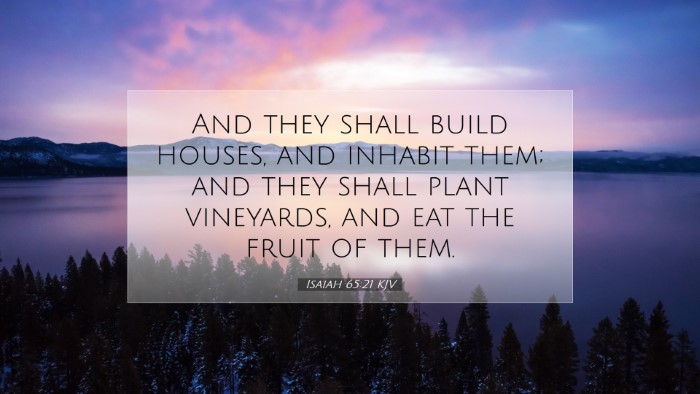Commentary on Isaiah 65:21
Verse: "And they shall build houses, and inhabit them; and they shall plant vineyards, and eat the fruit of them."
General Context
The verse occurs within a larger prophetic vision of restoration and renewal for Israel. Here, the prophet Isaiah discusses a future time when God's people will return from exile and experience His blessings. The context showcases contrasts between the previous suffering endured and the promised abundance awaiting them in God's kingdom.
Theological Insights
This verse offers a rich theological insight into God's redemptive plan. It signals a transition from desolation to restoration, emphasizing God's commitment to His covenant people. This point is fundamental in understanding the nature of divine promise and hope.
- Covenant Renewal: The rebuilding of houses signifies the restoration of personal and communal identity. It reflects God's promise to not only forgive but to reestablish His people in the land He had given them (Matthew Henry).
- Cultivation of the Land: The act of planting vineyards symbolizes prosperity and an intimate relationship with God’s creation. The ability to eat the fruits represents enjoyment and satisfaction in the blessings God provides (Adam Clarke).
Exegetical Analysis
The imperative verbs "build" and "plant" denote active participation by the people in the renewal process. This involvement illustrates that divine regeneration often requires human cooperation and faithfulness to God’s commands (Albert Barnes).
The phrase "and eat the fruit of them" conveys a sense of joy and fulfillment. It emphasizes the contrasts with earlier experiences of loss and displacement during the Babylonian captivity, highlighting restoration's joy as a precondition to a vibrant covenant life.
Contrast with Previous Conditions
Isaiah 65:21 stands in stark contrast to the plight experienced by Israel prior to their repentance. They previously faced destruction and loss of possession, which was a direct consequence of their unfaithfulness (Matthew Henry). The promise here is not merely of physical houses and vineyards; it symbolizes the complete restoration of divine favor.
- Desolation to Abundance: God’s people would transition from being landless and helpless to thriving as productive members of society (Albert Barnes).
- Security and Stability: The act of inhabiting houses presents a new phase where the people can settle and establish roots, in contrast to their transient existence during captivity.
Implications for Believers Today
For modern believers, this verse reassures that God's redemptive work is ongoing. The promises in Isaiah are often seen in a dual sense, reflecting both immediate fulfillment for the Israelites and a larger eschatological hope that believers anticipate today (Adam Clarke).
- Hope of Restoration: This passage can inspire believers to trust in God’s provision amidst trials, affirming that God can turn desolation into abundance.
- Active Participation: Just like the Israelites were called to build and plant, contemporary faith requires active engagement in God's mission (Matthew Henry).
Conclusion
Isaiah 65:21 encapsulates the essence of God's promise of restoration. It is a powerful reminder of the hope we possess as God’s people, affirming His faithfulness in turning our mourning into joy and our barrenness into fruitfulness. For pastors, students, and theologians, this passage serves as a theological and practical framework for understanding God’s ongoing work in restoring His creation.


